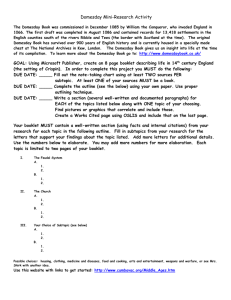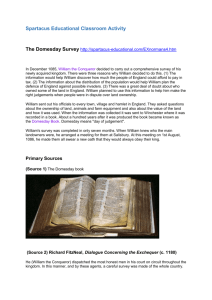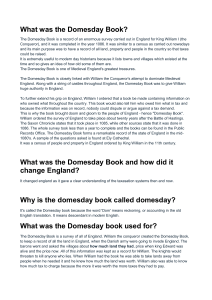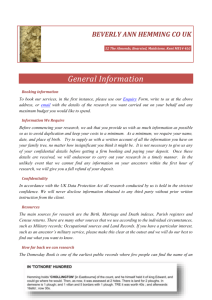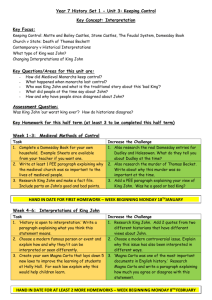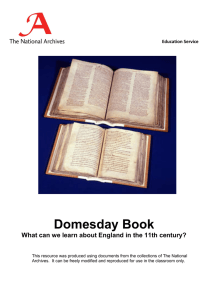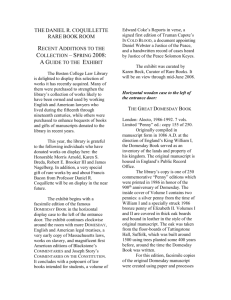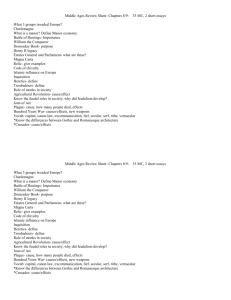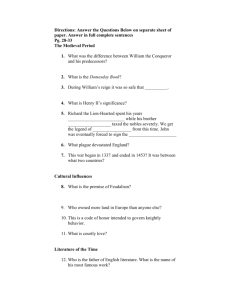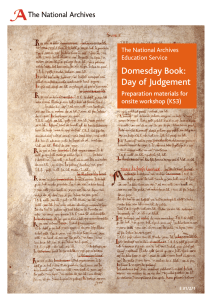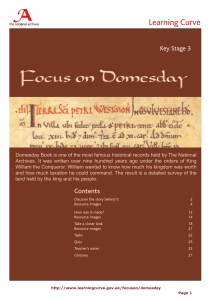The Domesday Book
advertisement
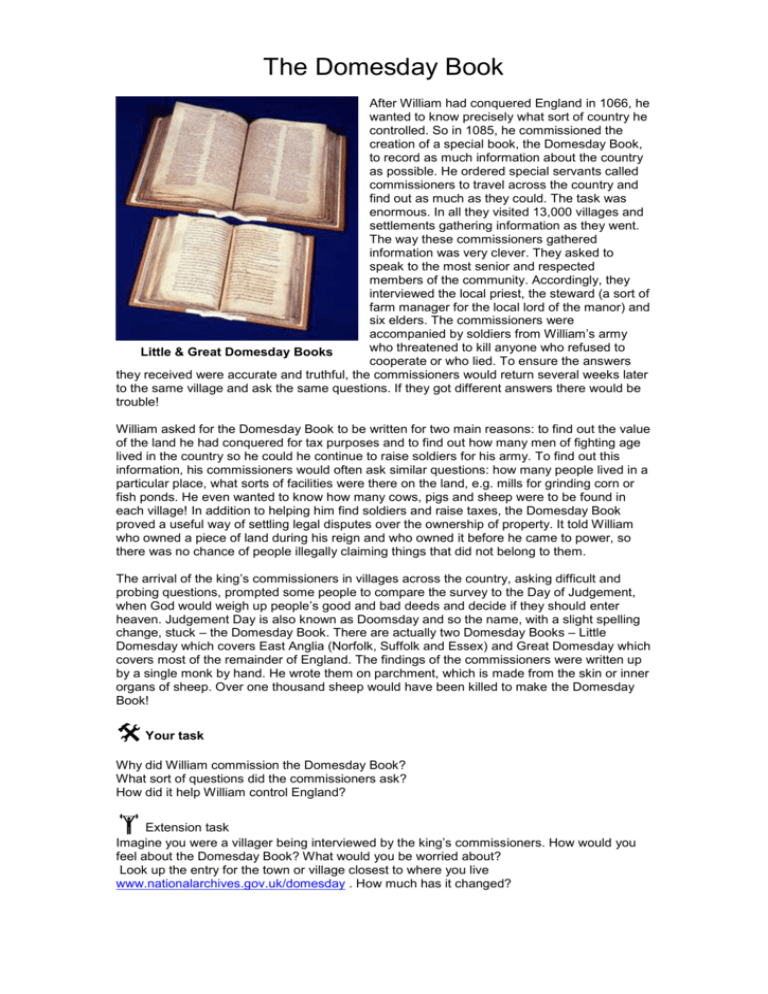
The Domesday Book After William had conquered England in 1066, he wanted to know precisely what sort of country he controlled. So in 1085, he commissioned the creation of a special book, the Domesday Book, to record as much information about the country as possible. He ordered special servants called commissioners to travel across the country and find out as much as they could. The task was enormous. In all they visited 13,000 villages and settlements gathering information as they went. The way these commissioners gathered information was very clever. They asked to speak to the most senior and respected members of the community. Accordingly, they interviewed the local priest, the steward (a sort of farm manager for the local lord of the manor) and six elders. The commissioners were accompanied by soldiers from William’s army who threatened to kill anyone who refused to Little & Great Domesday Books cooperate or who lied. To ensure the answers they received were accurate and truthful, the commissioners would return several weeks later to the same village and ask the same questions. If they got different answers there would be trouble! William asked for the Domesday Book to be written for two main reasons: to find out the value of the land he had conquered for tax purposes and to find out how many men of fighting age lived in the country so he could he continue to raise soldiers for his army. To find out this information, his commissioners would often ask similar questions: how many people lived in a particular place, what sorts of facilities were there on the land, e.g. mills for grinding corn or fish ponds. He even wanted to know how many cows, pigs and sheep were to be found in each village! In addition to helping him find soldiers and raise taxes, the Domesday Book proved a useful way of settling legal disputes over the ownership of property. It told William who owned a piece of land during his reign and who owned it before he came to power, so there was no chance of people illegally claiming things that did not belong to them. The arrival of the king’s commissioners in villages across the country, asking difficult and probing questions, prompted some people to compare the survey to the Day of Judgement, when God would weigh up people’s good and bad deeds and decide if they should enter heaven. Judgement Day is also known as Doomsday and so the name, with a slight spelling change, stuck – the Domesday Book. There are actually two Domesday Books – Little Domesday which covers East Anglia (Norfolk, Suffolk and Essex) and Great Domesday which covers most of the remainder of England. The findings of the commissioners were written up by a single monk by hand. He wrote them on parchment, which is made from the skin or inner organs of sheep. Over one thousand sheep would have been killed to make the Domesday Book! Your task Why did William commission the Domesday Book? What sort of questions did the commissioners ask? How did it help William control England? Extension task Imagine you were a villager being interviewed by the king’s commissioners. How would you feel about the Domesday Book? What would you be worried about? Look up the entry for the town or village closest to where you live www.nationalarchives.gov.uk/domesday . How much has it changed?
